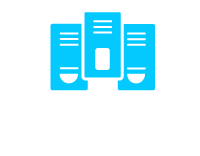In this Deep Dive,Ihab Farhoud, Director, Solutions Engineering – VMware Middle East, Turkey and North Africa, talks about data centres and his view on the sector.

What would you describe as your most memorable achievement in the data centre industry?
Throughout my management career I have been tasked to either build or expand technical teams, or change the way the teams work, and this is always something I have managed to achieve. Sometimes it involves changing or modifying the mission of the team to accommodate the vision of the company that I’ve worked for.
More importantly, one of the most important achievements to me in this industry is embracing diversity and inclusion within my teams, whether within this role or previous roles. While there is still a lot of work to do, I’m proud to have played a role in increasing the gender diversity in my current technical team. In just 18 months, we have increased the number of females the team from one to nine. This is not only important in terms of making society more equitable, but also in ensuring a breadth of ideas and skills. Diversity and inclusion are always high on my agenda.
What first made you think of a career in technology?
Since I was at school I have always been fond of science and technology. I always believed that technology would change the world, improve life for humans and save lives, so I have always viewed technology as the future – and I knew that I had to embrace the future and be part of it. When I went to university, I studied computer science, focusing on all aspects of the subject, from software to hardware and computer networks. From these early days in the mid-1980s, I’ve seen the data centre industry evolve from the small server room into the cloud. I have always been fascinated with the IT services that are provided from that room, and how to expand and improve it, and offer more services. Seeing the potential in the data centre industry also made me continue in that direction within the IT industry, in the specific vertical of data centre and cloud.
What style of management philosophy do you employ with your current position?
I like to hire smart and ambitious people with good character and the ability to learn. This is what I look for, and when I interview people this is what I tell them. Of course, having the relevant technical background and experience is important. But fitting in within the company’s culture is even more important. That is why I always look for people with the right character who will fit within the team. In large organisations, it’s relatively easy to train someone, and within three months, turn them into a guru of a specific field – but you cannot really change their character.
What do you see as the current hot talking points in the industry?
At present, everybody is talking about Digital Transformation, and how are we going to change things post-pandemic or during the pandemic. The pandemic really did change perceptions around Digital Transformation and acted as a catalyst. Everybody started to accelerate their Digital Transformation journeys. Most people who did this started from the data centre, from the core of their IT business. If you don’t transform, you are going to fall behind, which is bad for any business.
There are other hot topics too – data centre modernisation, application modernisation, and cloud – where we’re talking about public clouds, Software-as-a-Service, infrastructure as a service, or Platform-as-a-Service.
Of course, cybersecurity has always been a hot topic, and always runs in parallel to anything. Cybersecurity is super important and attempting to do anything without it will fail.
How do you deal with stress and unwind outside of the office?
I handle stress by doing activities that give me a change of scene and a break from the world of IT. I like to get exercise, usually by taking long walks, and I also listen to music and read a lot – usually books about business and leadership. I also like to get some retail therapy at the mall at the weekends. I try as much as possible to change the atmosphere – change it completely by doing something that is not related to work.
What do you currently identify as the major areas of investment in your industry?
If we look at the IT industry, there are several major areas of investment including cloud, cybersecurity, Artificial Intelligence, data analytics, Big Data, and unified communications. Unified Communication has grown in importance recently. It slowed down for a while before the pandemic because it hit a plateau, but throughout the pandemic, innovations started to emerge again with all the demand for distributed working and communication for socializing and other reasons, such as education and healthcare. With all these changes and new requirements, the technology needed to evolve and innovation was needed to support all the different scenarios and use cases.
What are the region specific challenges that you encounter in your role?
From a business perspective, adoption of cloud and subscription to cloud services needs a push in the region. It has accelerated, but not at the same pace as other markets such as the US, Europe and Asia. there is also a need for more cloud providers in the region, although the situation is improving.
There is also a shortage of digital talent, although things are getting better, and initiatives such as the VMware IT Academy are helping to encourage young people – both undergraduates and graduates – to gain real world IT skills including with VMware technology.
Another challenge is IT-spending by organisations. Many organisations in the region still don’t consider IT as being core to the business. This is the conventional way of thinking, but it needs to change. IT expenditures suffer with this sort of mentality, and the lack of investment makes it more difficult for them to innovate. Organisations need to turn the conventional thinking on its head and view IT as core to the business and the driving force of innovation.
If a company doesn’t have a Digital Transformation plan, or an IT strategy as part of their business plan, they will not move forward at the speed of the market, putting them at a serious disadvantage compared to their competitors. IT will help enable the business to run at the speed – or surpass the speed – of the market. It will increase your revenue, reduce your costs and open up new market opportunities. Company directors and managers need to be forward thinking and have vision to understand this.
On a more personal level, one of the challenges in my role is managing people of so many different nationalities across a very broad and diverse region. For this reason, it’s important for me to understand the cross-cultural similarities and differences, which in turn leads to successful relationship and communication with my ecosystem. By my ecosystem, I mean the employees, the partners and the customers.
Keeping in touch with my ecosystem across the region is an important issue, and the pandemic changed everything. I used to travel all the time, and now that’s been replaced with Zoom. It is a challenge to stay in touch with people that you used to see each month or even every week, but it’s been a learning experience in many ways. We’re also helping organisations around the region maintain distributed workforces and use remote solutions, and it’s something I can relate to having lived the experience myself. The focus on remote solutions will continue, and technology will keep evolving to support the new normal.
What changes to your job role have you seen in the last year and how do you see these developing in the coming months?
The main change in my role has been to embrace the new normal, particularly in terms of maintaining a strong relationship with colleagues and partners while working remotely. From a business point of view, because I’m in pre-sales, my role involves being a manager and a technical person. This meant that I had to learn all about how remote solutions applied to various verticals such as education, health care, and retail, so that I could provide valuable insights to customers on how they could use technology to adapt to the pandemic.
Click below to share this article


